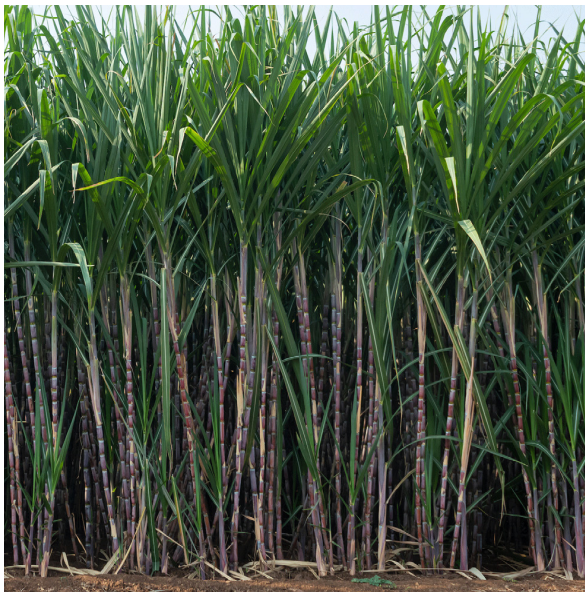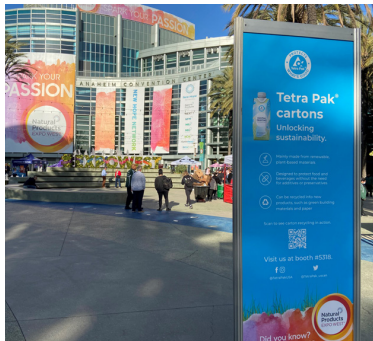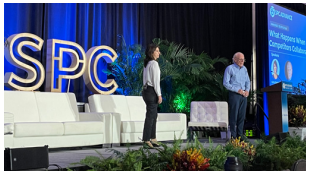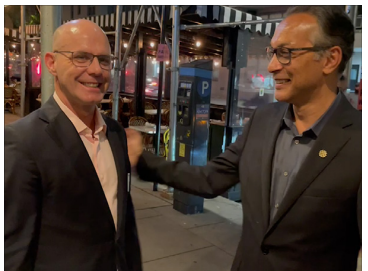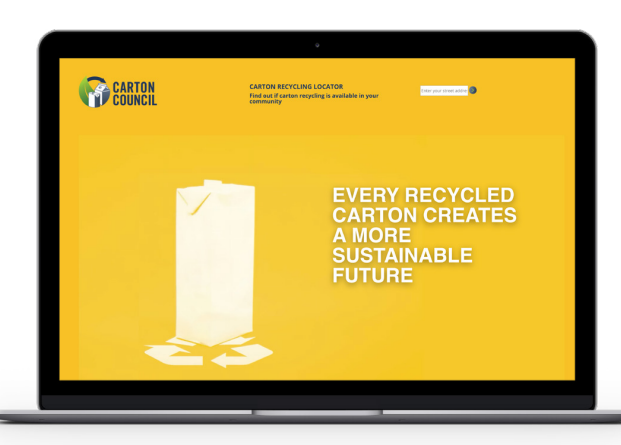Tetra Pak U.S. and Canada Sustainability Report FY22: Planet
Tetra Pak 2022 Sustainability Report
Sustainability Through Services
In 2022, we increased the number of site-based service engineers in the U.S. and Canada by more than 25%
Tetra Pak’s Customer Service Operations team is based all around the U.S. and Canada, and helps our customers optimize their food and beverage operations. This team plays a big role in making the food and beverage supply chain more sustainable, not only through the continuous reduction of downtime and waste at our customer sites, but also by reducing our engineers’ travel to those sites. In 2022, we increased the number of site-based service engineers in the U.S. and Canada by more than 25%, which led to an approximate 158-ton reduction in greenhouse gas emissions.
We’re also leveraging One Remote Support, allowing us to be available to remotely help our customers 24/7. Using this tool, we have resolved 668 customer cases without the need for travel, saving approximately 26 tons of CO2.
Reducing Factory Waste
Our Denton factory converts paperboard, aluminum foil and polyethylene (PE) into carton packaging material, churning out 7.1 billion packs a year. With so many materials coming through the factory, even small changes can have a sizable impact on sustainability.
As these rolls of materials go through the process of printing, lamination and slitting, a small amount of material is left at the edge to be trimmed and recycled. In 2022, we improved our controls and reduced the amount of material that is trimmed and recycled. This will save about 227 tons of materials per year, the equivalent of 12.6 million packs.
227 million tons of materials saved per year, the equivalent of 12.6 million packs
Local Production of Cartons With Plant-Based Polyethylene
We’ve also made improvements to the factory to allow for the production of shelf-stable carton material using plantbased polyethylene (PE). Our plant-based PE is made from sugarcane, which lowers the carbon footprint of these packages. While the production process for cartons that use plant-based PE is the same as other cartons, investments had to be made to ensure the safe handling of this new material.
As sugarcane grows, it absorbs negative CO2 emissions and releases oxygen, meaning fewer greenhouse gases circulate in the atmosphere. And cartons that use plant-based PE are accepted in the same recycling stream established for postconsumer cartons, where they can be turned into building materials, paper products and more.
Demand for cartons made with plantbased PE continues to grow. In 2022, Tetra Pak sold 220 million packs with plant-based PE in the U.S. and Canada, representing about 2.3% of all cartons made in Denton that year. That's about 603,000 kg of fossil-based PE replaced with plant-based PE, and a large increase from 77 million sold in 2021. We expect to see this growth continue as more brands in the U.S. and Canada look for ways to reduce their carbon emissions.
Educating Customers, Employees and the Industry on Sustainability
Natural Products Expo West
Natural Products Expo West is the largest natural, organic and healthy products event in the U.S. With brands focused on sustainability in attendance, it’s the perfect opportunity to provide education on recycling cartons and other sustainability benefits of carton packaging.
Once again, Tetra Pak was the Waste Diversion sponsor at Natural Products Expo West 2022, providing opportunities to educate attendees on proper waste sorting and ensuring cartons are recycled at the event.
Speaking engagements
Leaders from Tetra Pak spoke on topics related to sustainability at a number of events in 2022. Collaboration was a key theme at a number of these events.
Carla Fantoni, Vice President of Communications Operations, Tetra Pak, joined Ed Klein of the Carton Council of North America for a TED Talk-style presentation at SPC Advance 2022 titled, “What Happens When Competitors Collaborate?”
For GreenBiz 22, Jason Pelz, Vice President of Sustainability, Tetra Pak U.S., Canada, Central America and the Caribbean, and Ashley Elzinga, Director of Sustainability & Outreach, Foodservice Packaging Institute, joined up for the “Recyclability vs. Recycling Infrastructure: How to Engage Stakeholders and Align Solutions” webinar.
At GreenBiz's Circularity 22, Jordan Fengel, Sustainability Manager, Tetra Pak U.S. and Canada, hosted a panel sponsored by Tetra Pak focused on “A Collaborative Approach to Increase Recycling Access and Rates.” Panel participants included representatives from the Carton Council, Pactiv Evergreen and Sustana.
We also shared best practices as it relates to sustainability and Services. Sasha Ilyukhin, Vice President Customer Service Operations, Tetra Pak Americas, presented on the impact of Tetra Pak® Services on Sustainability at the 2022 Smart Services™ Executive Symposium, the industry’s premier event for leaders in service, support and customer experience.
Employee engagement and education
Each year, Tetra Pak hosts a spring and fall electronics recycling event at our Denton, Texas, campus. In 2022, we collected just over 10,000 lbs. of electronics to prevent valuable materials from becoming waste! The items are collected from both Tetra Pak facilities and our employees. We also celebrated our annual Sustainability Week with employees.
In 2022, this included interactive activities to learn more about our sustainability achievements and initiatives. Each day included a new activity, such as webinars and quizzes. We also marked the production of cartons using plant-based PE in the Denton factory with in-person celebrations where employees learned about the importance of choosing native plants for biodiversity and wellbeing, and everyone received a small succulent.
Celebrating America Recycles Day
We marked America Recycles Day by celebrating with both our employees and customers. Tetra Pak hosted a sustainability webinar for our packaging customers focused on our progress in increasing carton recycling access and rates, and other current efforts to grow carton recycling. For our employees, select Tetra Pak sites hosted on-site recycling activities and all employees were encouraged to learn more about carton recycling.
Driving Sustainability Through Public Affairs
As part of our public affairs efforts, Tetra Pak participated in the United Nations General Assembly Climate Week in New York. Tetra Pak representatives spoke with Sweden’s COP27 Business Delegation at the event, addressing scalable innovations to decarbonize the food supply chain.
Eric Harris, Director of Government Relations and Public Affairs, Tetra Pak U.S. and Canada also connected with Ani Dasgupta, President and CEO of World Resources Institute, to talk about innovative solutions to challenges like food waste and decarbonizing the supply chain. We also had the opportunity to connect with Nena Shaw, Acting Director of the Environmental Protection Agency’s Resource Conservation and Sustainability Division, to discuss the importance of fiber-based packaging and cartons to the U.S. circular economy.
Carton Council of North America
Since 2009, the Carton Council of North America has worked to deliver long-term, collaborative solutions to divert valuable cartons from landfills to recycling programs. The organization is made up of the major producers of carton packaging, including Tetra Pak.
Growth in carton recycling access
The Carton Council continues to make headway in growing carton recycling access and rates across the U.S. In 2022, carton recycling access reached 62% in the U.S., meaning carton recycling is readily available in more than 78 million households in 49 states and in more than 11,000 schools.
The Carton Council’s homepage, simplified
Moving forward, RecycleCartons.com will serve as the Carton Council’s sole website for both consumer and industry information. As users check out the homepage, they’ll see the same general information about carton recycling, along with the launch of its address locator.
Replacing the former ZIP code locator, the new address locator tool on the website lets consumers see if food and beverage cartons are accepted in their local community program.
50% of consumers say the package is the top source for recycling information.
Consumer recycling research
In November 2022, the Carton Council commissioned a national survey to identify key knowledge, attitudes and beliefs about food and beverage carton recycling among U.S. consumers. The survey found that 75% of consumers said they would assume a package is not recyclable if it does not contain a recycling logo or recycling information on it. It was also revealed that the package remains the top source (50%) for recycling information, followed by local community websites (41%).
Furthermore, 74% of consumers feel that knowing a brand’s packaging is recyclable increases the chance they will purchase it over another comparable product. And 60% of respondents indicated their loyalty to food and beverage products is impacted by the brand’s engagement with environmental causes.
Support for recycling continues to grow among consumers, with 76% saying that recycling is important, and people should try to make it a priority — a 25% increase since the question was first asked in 2015. An additional 19% said they believe recycling is somewhat important, and people should do what they can to try to recycle.
Recycling infrastructure improvements in Michigan
To find a better use for the small percentage of polyethylene and poly/ aluminium residual from the carton recycling process, Michigan-based paper mill Great Lakes Tissue Company collaborated with the Carton Council, state departments, and other organizations to raise funds to improve recycling and manufacturing infrastructure in the state.
The funds helped secure new equipment to better handle the residual from the pulping process so that more water can be removed from the polyethylene and poly/ aluminium residual, decreasing its weight for transportation. The residual can be sent on for further recycling as ceiling tiles and wallboard or can be used for energy to fuel the paper mill. Currently, the residual is sent to St. Mary’s Cement in Charlevoix, Michigan, where it offsets the use of coal as fuel.

